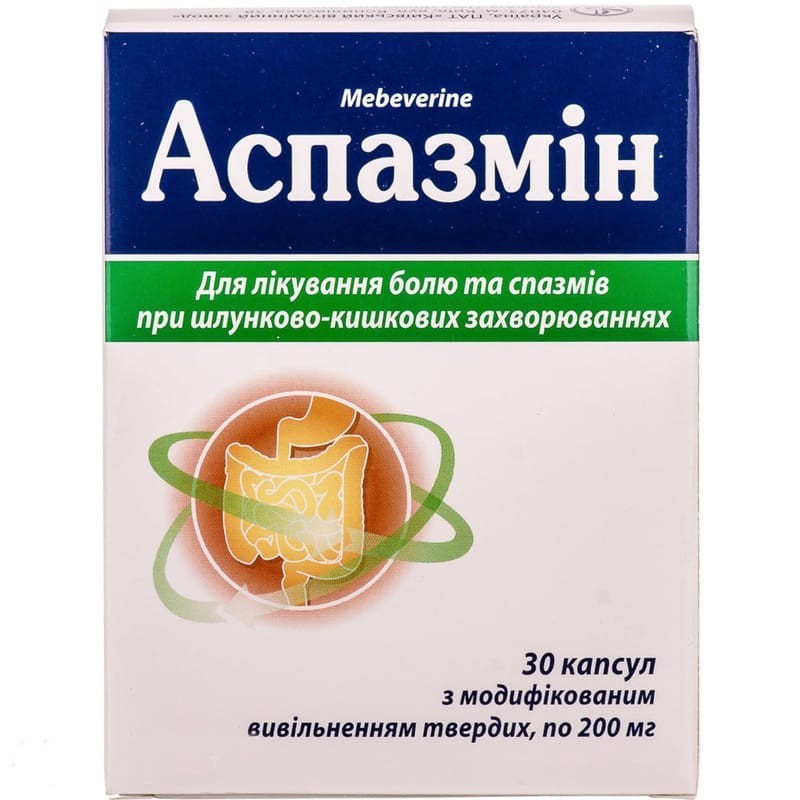



 Secure and encrypted payment processing
Secure and encrypted payment processing We ship to over 40 countries including the USA, UK, Europe, Australia and Japan
We ship to over 40 countries including the USA, UK, Europe, Australia and Japan Guaranteed refund or reship if you haven't received your order
Guaranteed refund or reship if you haven't received your ordermebeverin is a myotropic antispasmodic with a selective effect on the smooth muscles of the digestive tract. mebeverin eliminates spasms without inhibiting normal intestinal motility. since this action is not mediated by the autonomic nervous system, there are no typical anticholinergic side effects.
Pharmacokinetics Absorption. Mebeverin is rapidly and completely absorbed after oral administration. Due to the prolonged release of the drug from the capsule, it can be taken 2 times a day.
Distribution. With repeated use of mebeverin, significant cumulation does not occur.
Metabolism. Mebeverine hydrochloride is mainly metabolized by esterases, which in the first stage of metabolism break down ether bonds with the formation of veratraic acid and mebeverin alcohol. In blood plasma, demethyl carboxylic acid (DMCC) is the main metabolite. T½ DMCC in equilibrium - 5.77 hours. With repeated use of capsules (200 mg 2 times a day) Cmax DMCC was 804 ng / ml, and tmax - about 3 hours. The relative bioavailability of sustained-release capsules was optimal with an average ratio of 97%.
Mebeverin is not excreted unchanged, it is completely metabolized, and metabolites are excreted almost completely. Veratric acid is excreted in the urine. Mebeverin alcohol is also excreted by the kidneys in the form of carboxylic acid or DMCC.
Children. Pharmacokinetic studies in children have not been conducted.
Adults and children over 10 years:
The drug is intended for oral use.
Drink capsules with a sufficient amount of water (at least 100 ml). It is not recommended to chew the capsule, as the capsule coating provides a sustained release of the active substance.
Adults and children over the age of 10 take 1 capsule 2 times a day (morning and evening).
Duration of use is not limited. If the patient has missed taking one or more doses, the next dose should be taken as expected. Missed doses should not be taken additionally.
Special patient groups
Dosing studies for elderly patients, patients with impaired renal or hepatic function have not been conducted. There is no specific risk for elderly patients, patients with impaired renal or hepatic function. Dose adjustment for the above patient groups is not necessary.
Hypersensitivity to the active substance or to any of the components of the drug.
On the part of the skin and subcutaneous tissue: urticaria, angioedema, swelling of the face and rash.
From the immune system: hypersensitivity (anaphylactic reactions).
Use during pregnancy and lactation. aspazmin is not recommended for use during pregnancy due to limited data on the use of mebeverin in pregnant women.
It is not known whether mebeverine or its metabolites pass into breast milk, so Aspazmin should not be used during breast-feeding.
There are no clinical data on the effect of the drug on male or female fertility.
Children. The drug should not be used in children under the age of 3 years due to the lack of clinical data regarding this age category of patients. Children aged 3 to 10 years should also not be prescribed the drug due to the high content of the active substance.
The ability to influence the reaction rate when driving vehicles and working with other mechanisms.Studies on the effect of the drug on the ability to drive a car and work with mechanisms have not been conducted. The pharmacodynamic and pharmacokinetic profile does not indicate a harmful effect on the ability to drive a car or work with mechanisms.
Studies have been conducted on the interaction of the drug with alcohol. in vitro and in vivo animal studies have shown the absence of any interaction of mebeverin and ethanol.
Symptoms with an overdose, theoretically, excitement of the central nervous system can be observed. in cases of overdose of mebeverin, the symptoms were absent or were mild and quickly disappeared. overdose symptoms were of neurological or cardiovascular origin.
Treatment. The specific antidote is unknown. Symptomatic treatment recommended. Gastric lavage is recommended only in case of intoxication with several drugs within 1 hour from the time of taking the medication. Measures to reduce absorption are not necessary.
At a temperature not exceeding 25 ° C.